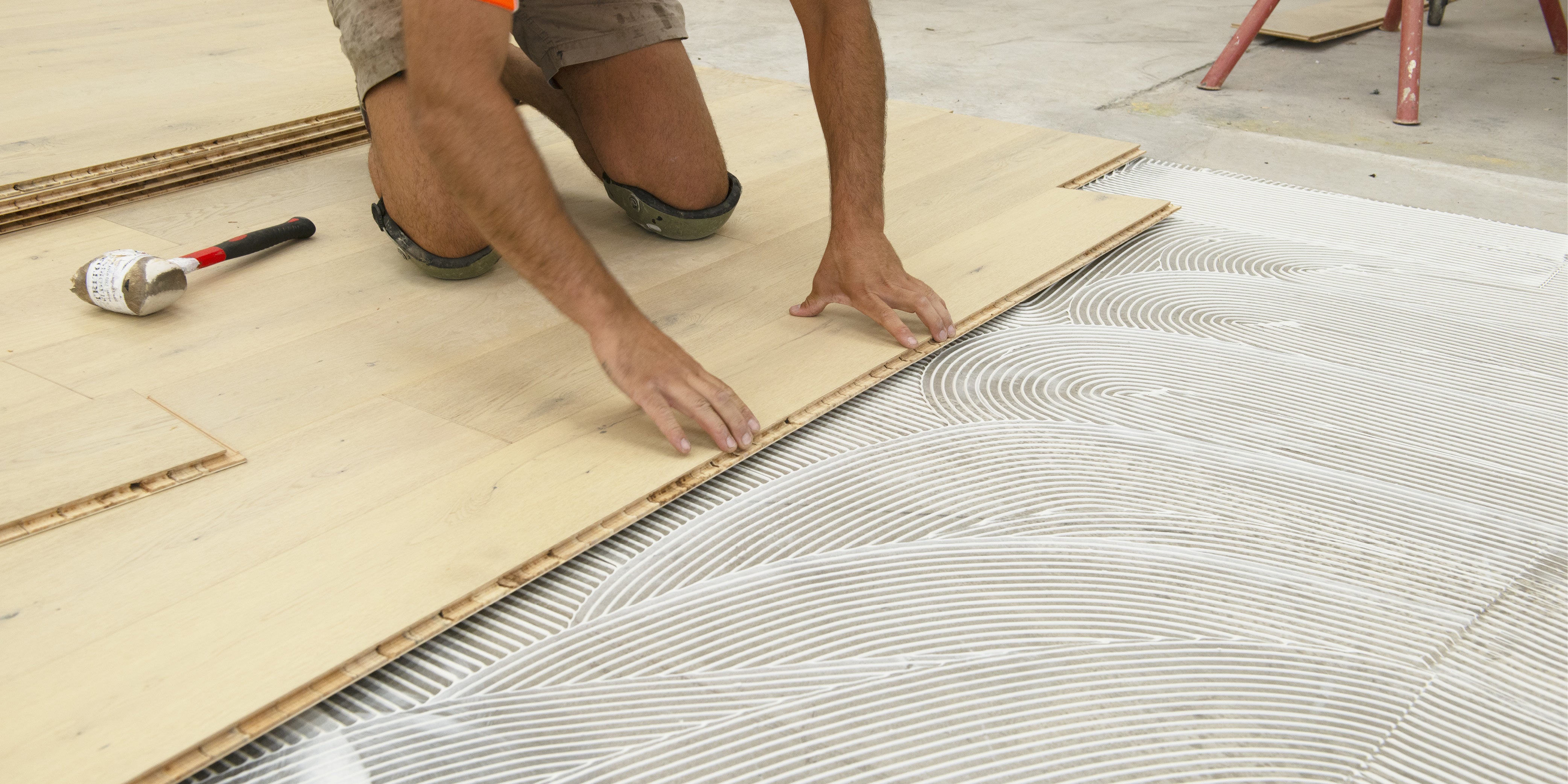Timber Floor Installation
Find out all you need to know about installing timber flooring.
Find out all you need to know about installing timber flooring.

For those DIY savvy Australians out there timber flooring with a 5G locking system is ideal for DIY installation.
However, glue down install and floors with a T&G joining profile are recommended for professional install only.
Note we always recommend direct stick installation for timber flooring.
Hit the button to view our complete timber install guide.
What are the advantages and disadvantages of direct sticking your floor over floating?
If DIY isn't for you, leave it to the professionals!
*The above provides indicative installation rates (labour only) for the major cities in VIC, NSW, QLD, WA and surrounding areas.
$22 - 36 per M2
$20 - $26 per M2
$16 - $20 per M2
Find our complete timber flooring price guide here

As a natural product timber flooring needs time to adjust to the temperature and humidity levels of the environment before being installed.
Prefer to leave it to the professionals? Use our find an installer map to find certified flooring installers near you.

What our timber flooring customers have to say...
Postcode not found, please try again